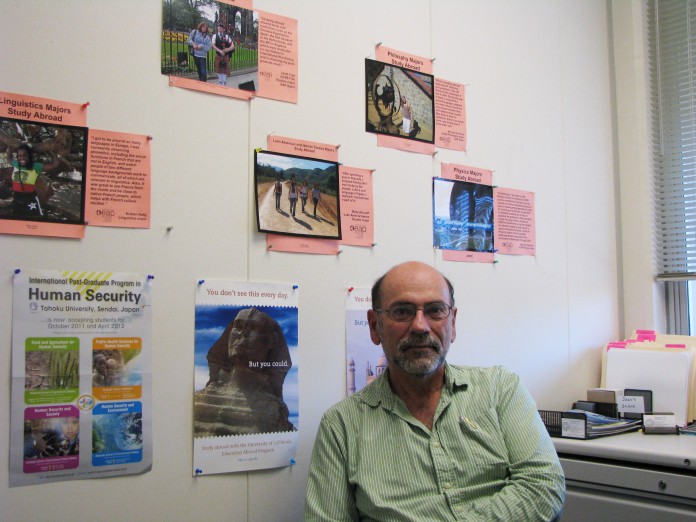
Staff Writer
Fans of diverse culture and language should look no further than the University of California Education Abroad Program. The experience aims to equip UC students with the knowledge, understanding, and skills for work and life all around the world. By establishing partnership with top universities in 35 countries, EAP at University of California Santa Barbara offers students about 250 programs and opportunities.
The duration of EAP varies from a short summer to one full academic year depending on the type of program. Students can attend several programs and receive credits and financial aid as if attending their home campus. This year, nearly 1,000 students have studied abroad and took advantage of living in a foreign environment. It is evident such benefits expand beyond just the classroom experience.
“I got huge amount of exposure to a new culture,” said Matthew Lu, a fourth-year economics major who studied at Fudan University in China this past spring. “It’s interesting to find new things at every corner and to look at things from a different angle. I felt not foreign anymore; I was a part of the city.”
While UCSB students live abroad, the university hosts more than 300 reciprocal students worldwide this fall quarter on a no-fee-exchange, non-degree basis.
Chansik Yoon, a third-year physics major from Yonsei University, Korea, sees the direct career benefits from her one year exchange at UCSB.
“I can contact the prominent professors is potentially helpful to me in my application for graduate school in the future. I am given a lot of freedom in regards to study here. I can talk more freely with professors and I can dig into my field more without distraction,” Yoon said.
Though a physics major student, Yoon is satisfied with the wide range of curricula in the electronic engineering department.
“They are more practical compared to the equivalent courses in Korea,” said Yoon. “I was impressed when I saw that professors from different fields and departments, such as physics, chemistry and materials science all worked together. Current research calls for more integrated knowledge. I really like the atmosphere of cooperation.”
Studying abroad is all about discovery- both on campus and beyond it- between studies, travels and immersion in local culture and life.
“It’s like a polished mirror,” said Lu. “Different people have different mindsets. From how other people look at things, I can reflect upon myself.”
Some unexpected obstacles arise in the adventure of discovering a new life. London’s weather will be nasty if one is accustomed to sunny California. Shanghai’s quick life pace and poor air quality is dissimilar to Santa Barbara’s tranquil town. Language barriers and culture shock may prove difficult for an instant adaption to the foreign environment. However, looking back upon those days will show a tremendous amount of growth.
“After experiencing a new environment, whether good or bad, I am more able to accept things and become tougher,” said Lu.
According to Juan Campo, the campus director of the Education Abroad Program at UCSB, most programs only require a minimum GPA of 2.85 to 3.0 and an interview with a regional advisor for acceptance. Moreover, some scholarships are provided by the program and UC system to ensure that EAP will not pose a heavy financial burden. Some intensive language programs are available if students want to go to English-as-second-language countries. The EAP office in 2431 South Hall can be the beginning of an adventure to embrace a new life.
“Most of the programs can change their students’ lives. They get a better sense of who they are,” according to Campo. “The unique experience prepares them better for living in a global world. There may be good job benefits too. Companies are now looking for people that are independent and have language skills and broad cultural background.”











Comments are closed.